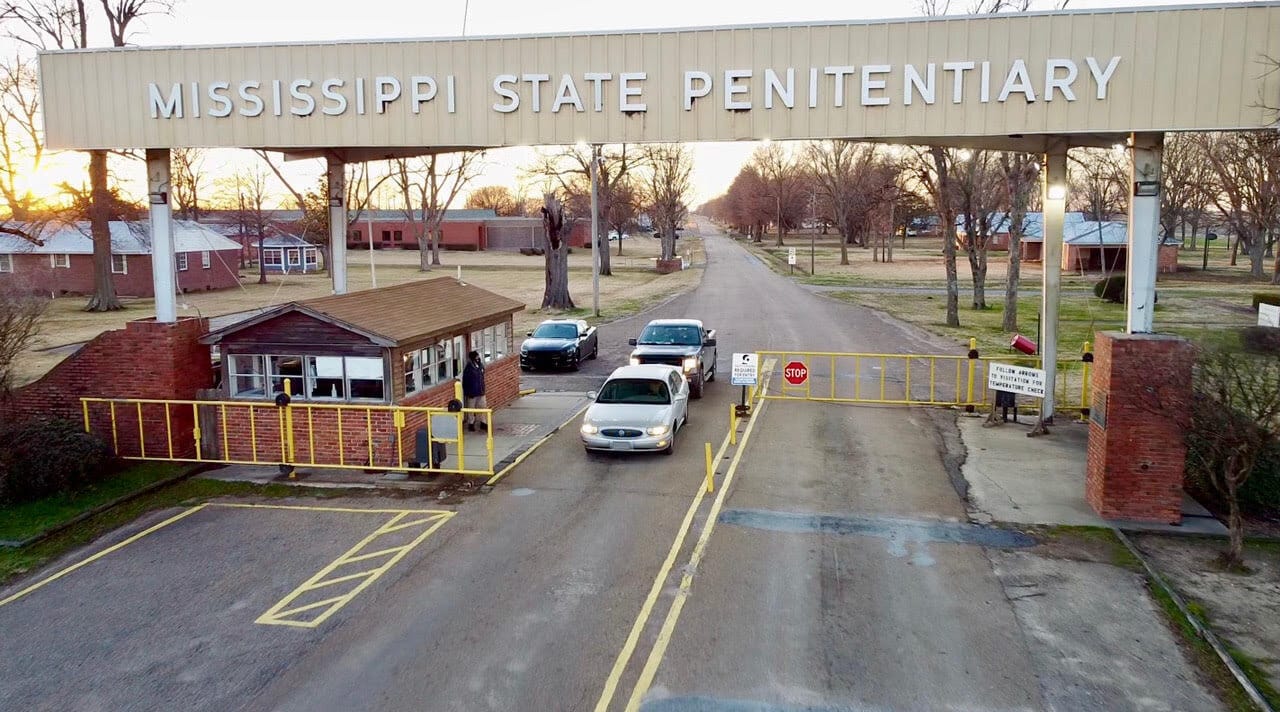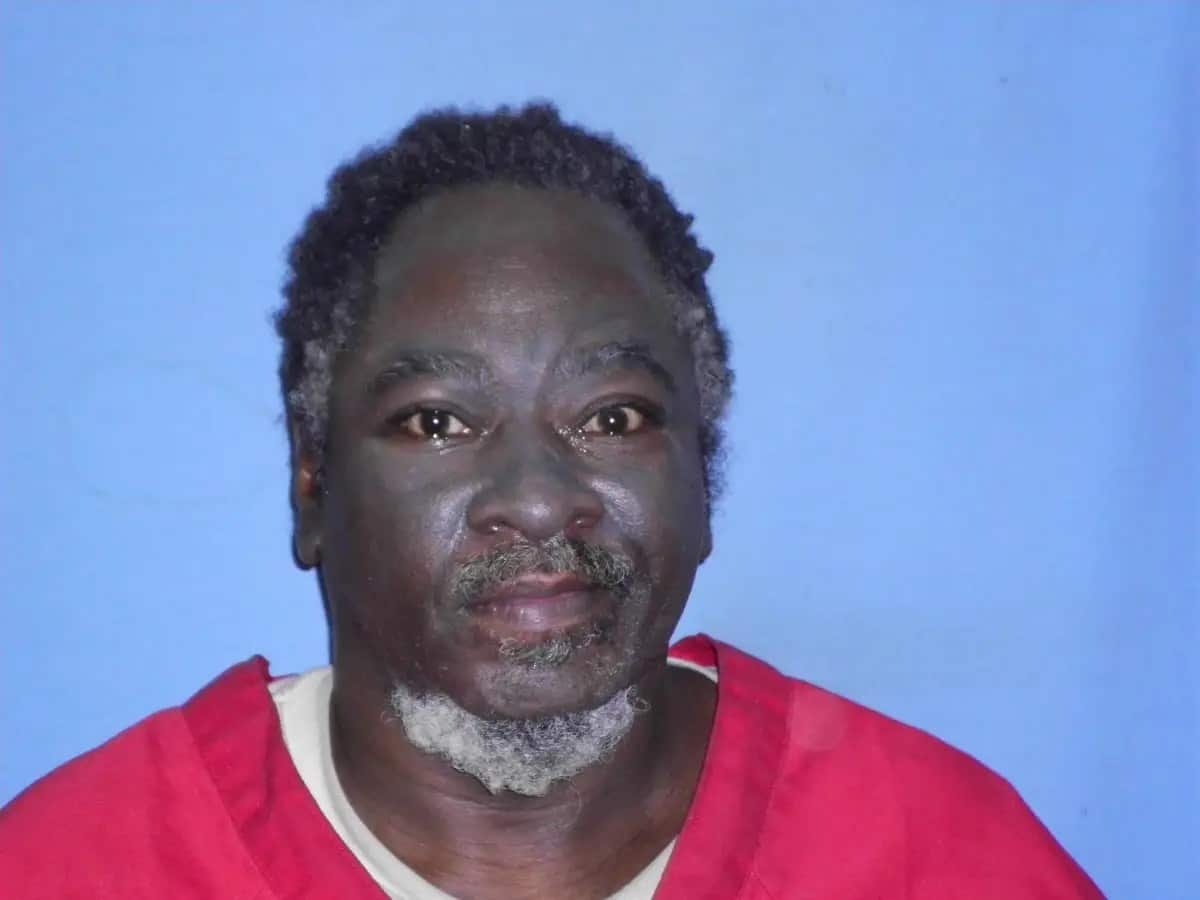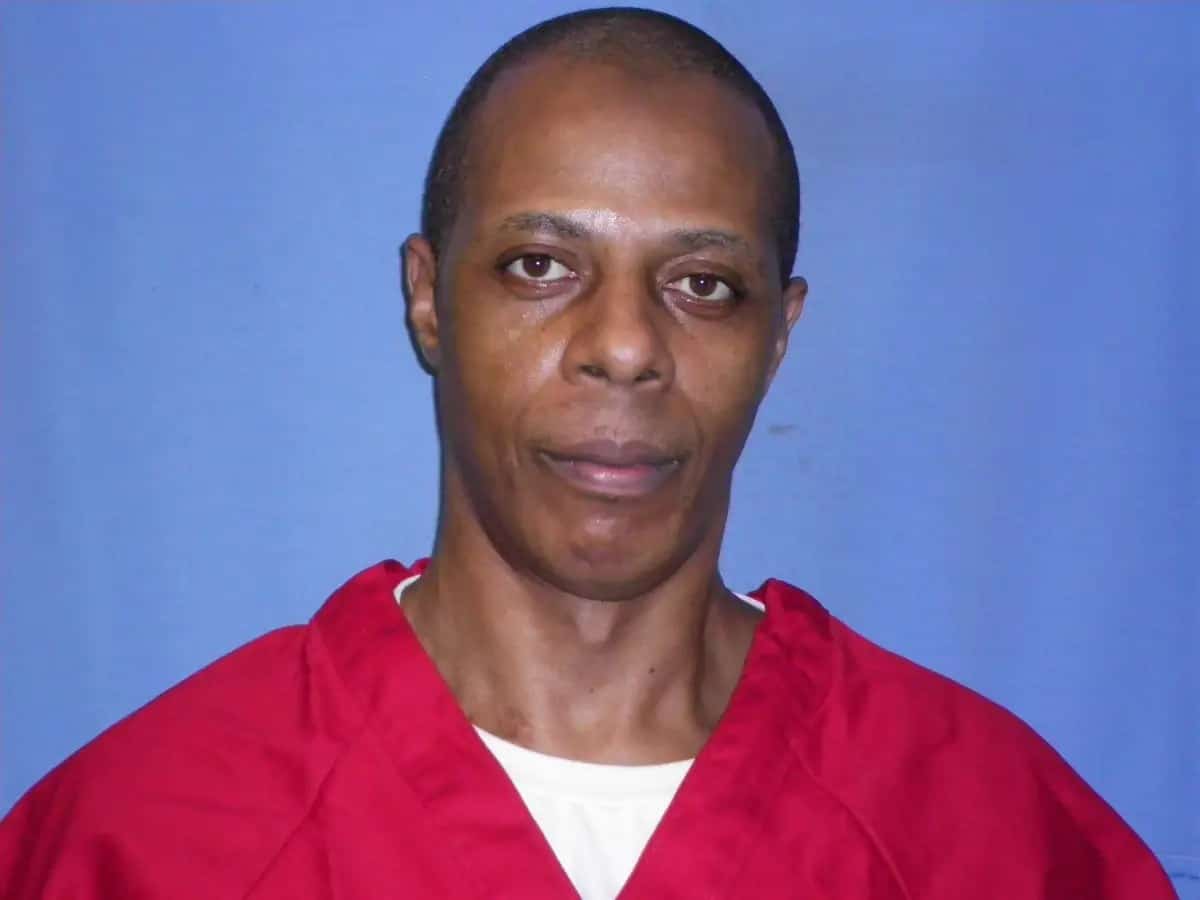Mississippi Today
Do these death row inmates have legal options to avoid execution? State AG’s office and defense attorneys disagree

The state and attorneys representing two men on death row are in conflict about whether legal options still exist for them to challenge their convictions or to proceed with their executions.
In court documents, attorneys from Attorney General Lynn Fitch’s office said Willie Jerome Manning and Robert Simon Jr., who have each been on death row for 30 years, have exhausted their legal options at the state and federal level, so it’s time to set their executions.
But attorneys representing them from the Office of Post-Conviction Counsel disagree, saying the men’s post-conviction relief petitions are still making their way through the court system and note that the Supreme Court, by law, is not required to set an execution if there is pending litigation.
“If a death-row inmate whose state and federal remedies have been exhausted could create an impediment to setting an execution date simply by filing another successive PCR motion, the State could never carry out lawful death sentences,” Fitch’s office wrote in its motion to set Manning’s execution.
On Monday, a spokesperson from Fitch’s office cited statute and case law, saying those determine the number of appeals a person is entitled to, and the courts ultimately decide whether someone has exhausted all of their legal remedies.
It would appear the court and even the AG’s office already did decide these two death row inmates haven’t exhausted them.
Last week, all nine justices of the Supreme Court agreed that it would not set Manning’s execution date until his post-conviction relief petition is reviewed. With the state’s Dec. 29 deadline to respond to Manning’s petition and his attorney’s 15-day deadline to respond, the earliest his execution could take place is mid January 2024.
In an April hearing for a federal lawsuit challenging the state’s lethal injection protocol that Simon has joined, the state recognized Simon was pursuing post-conviction relief.
“Until that habeas (post-conviction) petition is filed and resolved, the State would not move for execution in his case,” Special Assistant Attorney General Gerald Kucia told U.S. District Judge Henry Wingate.
A spokesperson for the attorney general’s office did not comment specifically about how attorneys from the office determined that dates should be set for Manning and Simon despite ongoing legal action.
One remaining avenue for relief is clemency from Gov. Tate Reeves, who during his first term in office has not granted it to anyone.

Simon, now 60, was convicted with co-defendant Anthony Carr, who is also on death row, of killing the Parker family in Quitman County in 1990. Simon and Carr broke into the home of Carl and Bobbie Jo and their two children while the family was at church. They shot the family members when they returned home and set the house on fire.
Simon and Carr received death sentences for killing the Parker parents and 12-year-old Gregory. Simon was separately convicted for the murder, kidnapping and sexual battery of 9-year-old Charlotte and received a life sentence.
In October, the Mississippi Supreme Court appointed the attorneys from the Office of Post-Conviction Counsel to represent Simon, and his attorneys said he has a constitutional right to effective assistance of post-conviction counsel and to file a successive petition for relief because his previous post-conviction legal team was ineffective.
Over the years Simon has had multiple attorneys, including one who was disbarred. Others moved out of state or no longer work on capital murder cases.
His attorneys say previous legal teams didn’t retain an expert to evaluate Simon’s mental health and they failed to seek funding for a proper post-conviction expert to delve into Simon’s history of trauma, head injuries and exposure to toxins.
Experts were also not hired to determine whether Simon is intellectually disabled under the U.S. Supreme Court case Atkins v. Virginia, which prevents the execution of intellectually disabled people, according to court records.
He had previously been scheduled to be executed in May 2011, but a federal appeals court ordered a stay to determine whether Simon was mentally incompetent from a brain injury and memory loss from a fall, according to court records. The Mississippi Supreme Court later rejected Simon’s claim.
Simon’s attorneys on Nov. 21 filed a successive petition for post-conviction relief and raised claims about his mental competency and whether he can be executed, ineffective post-conviction counsel and a lack of experts to evaluate his mental health and present potential mitigating evidence.
“Simon has never had the opportunity to challenge the ineffectiveness of post-conviction counsel—until now,” the petition states.
Based on the claims raised, Simon’s attorneys are asking for his death sentence to be reversed.

Manning, now 55, was convicted of shooting Mississippi State University students Tiffany Miller and Jon Steckler in 1994. He has maintained his innocence.
Two days after asking for an extension to respond to Manning’s September post-conviction relief petition, Fitch’s office asked the Supreme Court to set an execution date and dismiss his successive petition.
Manning’s attorneys said in court records that state law provides a remedy for newly discovered evidence, and that the state was wrong to say that the statute prohibits successive post-conviction relief petitions.
His petition documents discoveries of new evidence about recanted and testimony by witnesses and questionable firearms evidence used in his case.
Manning has been allowed to test additional DNA and run additional analyses since 2013, when a stay was ordered for his execution, but in court documents the state argues that those results have been inconclusive and he is now exhausted his legal options.
This article first appeared on Mississippi Today and is republished here under a Creative Commons license.
Did you miss our previous article…
https://www.biloxinewsevents.com/?p=311183
Mississippi Today
1964: Mississippi Freedom Democratic Party was formed
April 26, 1964

Civil rights activists started the Mississippi Freedom Democratic Party to challenge the state’s all-white regular delegation to the Democratic National Convention.
The regulars had already adopted this resolution: “We oppose, condemn and deplore the Civil Rights Act of 1964 … We believe in separation of the races in all phases of our society. It is our belief that the separation of the races is necessary for the peace and tranquility of all the people of Mississippi, and the continuing good relationship which has existed over the years.”
In reality, Black Mississippians had been victims of intimidation, harassment and violence for daring to try and vote as well as laws passed to disenfranchise them. As a result, by 1964, only 6% of Black Mississippians were permitted to vote. A year earlier, activists had run a mock election in which thousands of Black Mississippians showed they would vote if given an opportunity.
In August 1964, the Freedom Party decided to challenge the all-white delegation, saying they had been illegally elected in a segregated process and had no intention of supporting President Lyndon B. Johnson in the November election.
The prediction proved true, with white Mississippi Democrats overwhelmingly supporting Republican candidate Barry Goldwater, who opposed the Civil Rights Act. While the activists fell short of replacing the regulars, their courageous stand led to changes in both parties.
This article first appeared on Mississippi Today and is republished here under a Creative Commons Attribution-NoDerivatives 4.0 International License.![]()
Mississippi Today
Mississippi River flooding Vicksburg, expected to crest on Monday
Warren County Emergency Management Director John Elfer said Friday floodwaters from the Mississippi River, which have reached homes in and around Vicksburg, will likely persist until early May. Elfer estimated there areabout 15 to 20 roads underwater in the area.
“We’re about half a foot (on the river gauge) from a major flood,” he said. “But we don’t think it’s going to be like in 2011, so we can kind of manage this.”
The National Weather projects the river to crest at 49.5 feet on Monday, making it the highest peak at the Vicksburg gauge since 2020. Elfer said some residents in north Vicksburg — including at the Ford Subdivision as well as near Chickasaw Road and Hutson Street — are having to take boats to get home, adding that those who live on the unprotected side of the levee are generally prepared for flooding.



“There are a few (inundated homes), but we’ve mitigated a lot of them,” he said. “Some of the structures have been torn down or raised. There are a few people that still live on the wet side of the levee, but they kind of know what to expect. So we’re not too concerned with that.”
The river first reached flood stage in the city — 43 feet — on April 14. State officials closed Highway 465, which connects the Eagle Lake community just north of Vicksburg to Highway 61, last Friday.

Elfer said the areas impacted are mostly residential and he didn’t believe any businesses have been affected, emphasizing that downtown Vicksburg is still safe for visitors. He said Warren County has worked with the U.S. Army Corps of Engineers and the Mississippi Emergency Management Agency to secure pumps and barriers.
“Everybody thus far has been very cooperative,” he said. “We continue to tell people stay out of the flood areas, don’t drive around barricades and don’t drive around road close signs. Not only is it illegal, it’s dangerous.”
NWS projects the river to stay at flood stage in Vicksburg until May 6. The river reached its record crest of 57.1 feet in 2011.




This article first appeared on Mississippi Today and is republished here under a Creative Commons Attribution-NoDerivatives 4.0 International License.![]()
Mississippi Today
With domestic violence law, victims ‘will be a number with a purpose,’ mother says
Joslin Napier. Carlos Collins. Bailey Mae Reed.
They are among Mississippi domestic violence homicide victims whose family members carried their photos as the governor signed a bill that will establish a board to study such deaths and how to prevent them.
Tara Gandy, who lost her daughter Napier in Waynesboro in 2022, said it’s a moment she plans to tell her 5-year-old grandson about when he is old enough. Napier’s presence, in spirit, at the bill signing can be another way for her grandson to feel proud of his mother.
“(The board) will allow for my daughter and those who have already lost their lives to domestic violence … to no longer be just a number,” Gandy said. “They will be a number with a purpose.”
Family members at the April 15 private bill signing included Ashla Hudson, whose son Collins, died last year in Jackson. Grandparents Mary and Charles Reed and brother Colby Kernell attended the event in honor of Bailey Mae Reed, who died in Oxford in 2023.
Joining them were staff and board members from the Mississippi Coalition Against Domestic Violence, the statewide group that supports shelters and advocated for the passage of Senate Bill 2886 to form a Domestic Violence Facility Review Board.
The law will go into effect July 1, and the coalition hopes to partner with elected officials who will make recommendations for members to serve on the board. The coalition wants to see appointees who have frontline experience with domestic violence survivors, said Luis Montgomery, public policy specialist for the coalition.
A spokesperson from Gov. Tate Reeves’ office did not respond to a request for comment Friday.
Establishment of the board would make Mississippi the 45th state to review domestic violence fatalities.
Montgomery has worked on passing a review board bill since December 2023. After an unsuccessful effort in 2024, the coalition worked to build support and educate people about the need for such a board.
In the recent legislative session, there were House and Senate versions of the bill that unanimously passed their respective chambers. Authors of the bills are from both political parties.
The review board is tasked with reviewing a variety of documents to learn about the lead up and circumstances in which people died in domestic violence-related fatalities, near fatalities and suicides – records that can include police records, court documents, medical records and more.
From each review, trends will emerge and that information can be used for the board to make recommendations to lawmakers about how to prevent domestic violence deaths.
“This is coming at a really great time because we can really get proactive,” Montgomery said.
Without a board and data collection, advocates say it is difficult to know how many people have died or been injured in domestic-violence related incidents.
A Mississippi Today analysis found at least 300 people, including victims, abusers and collateral victims, died from domestic violence between 2020 and 2024. That analysis came from reviewing local news stories, the Gun Violence Archive, the National Gun Violence Memorial, law enforcement reports and court documents.
Some recent cases the board could review are the deaths of Collins, Napier and Reed.
In court records, prosecutors wrote that Napier, 24, faced increased violence after ending a relationship with Chance Fabian Jones. She took action, including purchasing a firearm and filing for a protective order against Jones.
Jones’s trial is set for May 12 in Wayne County. His indictment for capital murder came on the first anniversary of her death, according to court records.
Collins, 25, worked as a nurse and was from Yazoo City. His ex-boyfriend Marcus Johnson has been indicted for capital murder and shooting into Collins’ apartment. Family members say Collins had filed several restraining orders against Johnson.
Johnson was denied bond and remains in jail. His trial is scheduled for July 28 in Hinds County.
He was a Jackson police officer for eight months in 2013. Johnson was separated from the department pending disciplinary action leading up to immediate termination, but he resigned before he was fired, Jackson police confirmed to local media.
Reed, 21, was born and raised in Michigan and moved to Water Valley to live with her grandparents and help care for her cousin, according to her obituary.
Kylan Jacques Phillips was charged with first degree murder for beating Reed, according to court records. In February, the court ordered him to undergo a mental evaluation to determine if he is competent to stand trial, according to court documents.
At the bill signing, Gandy said it was bittersweet and an honor to meet the families of other domestic violence homicide victims.
“We were there knowing we are not alone, we can travel this road together and hopefully find ways to prevent and bring more awareness about domestic violence,” she said.
This article first appeared on Mississippi Today and is republished here under a Creative Commons Attribution-NoDerivatives 4.0 International License.
-

 News from the South - Florida News Feed6 days ago
News from the South - Florida News Feed6 days agoJim talks with Rep. Robert Andrade about his investigation into the Hope Florida Foundation
-

 News from the South - Alabama News Feed5 days ago
News from the South - Alabama News Feed5 days agoPrayer Vigil Held for Ronald Dumas Jr., Family Continues to Pray for His Return | April 21, 2025 | N
-

 Mississippi Today6 days ago
Mississippi Today6 days ago‘Trainwreck on the horizon’: The costly pains of Mississippi’s small water and sewer systems
-

 News from the South - Florida News Feed5 days ago
News from the South - Florida News Feed5 days agoTrump touts manufacturing while undercutting state efforts to help factories
-

 News from the South - Texas News Feed5 days ago
News from the South - Texas News Feed5 days agoMeteorologist Chita Craft is tracking a Severe Thunderstorm Warning that's in effect now
-

 News from the South - Virginia News Feed5 days ago
News from the South - Virginia News Feed5 days agoTaking video of military bases using drones could be outlawed | Virginia
-

 News from the South - Florida News Feed5 days ago
News from the South - Florida News Feed5 days agoFederal report due on Lumbee Tribe of North Carolina’s path to recognition as a tribal nation
-

 News from the South - Arkansas News Feed6 days ago
News from the South - Arkansas News Feed6 days agoAs country grows more polarized, America needs unity, the ‘Oklahoma Standard,’ Bill Clinton says














































